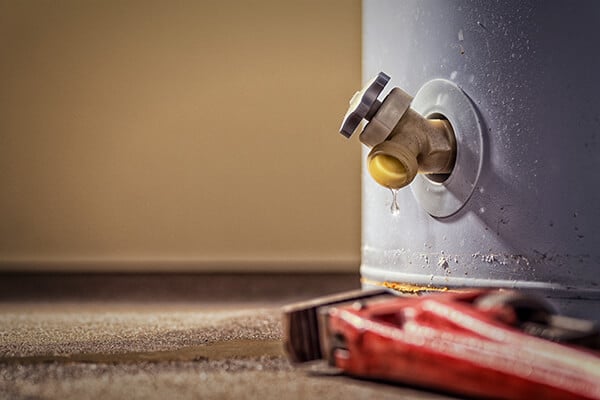How Long Will a New Water Heater Last?

If you’re in the market for a new water heater, one of the first things you’ll probably want to know is how long you can expect the new unit to last. The answer to this question depends on the type of water heater and also whether it is gas or electric. We’ll now look at the average lifespan for different types of water heaters and how maintenance can help ensure you get the most out of your new unit.
Average Lifespan for Traditional Water Heaters
Traditional water heaters store hot water inside a large tank. These units can use either gas or electricity to heat, and the lifespan differs depending on the energy source. Traditional gas water heaters have an average lifespan of around eight years; some units may last up to 12 years. Traditional electric units have a slightly longer lifespan and usually last between 12 and 15 years.
The main reasons that traditional water heaters fail is due to corrosion and issues caused by sediment build-up inside the tank. Sediment will always build up inside a traditional water heater as heating the water causes some minerals to solidify and settle at the bottom of the tank. In gas units, sediment build-up can create hot spots at the bottom of the tank, which can weaken the metal and speed up the rate of corrosion. In electric units, sediment can damage the lower heating element and cause it to fail.
All traditional water heaters have an anode rod that helps to prevent the tank from corroding. This works by interacting with minerals in the water so that they corrode the anode rod instead of the metal tank. However, the anode rod only has a limited lifespan. If the rod isn’t inspected regularly and replaced as needed, the tank will begin to corrode and the unit will only last for a short time.
Tankless Water Heater Life Expectancy
Although tankless water heaters are more expensive than traditional units, the fact that tankless heaters have a much longer lifespan will more than offset the higher initial cost. Most tankless units should easily last for 15 to 20 years, and some units can potentially last for 30 years or more. This means that you would typically end up going through two or even three traditional units in the same period as you would just one tankless water heater.
There are two main reasons that tankless water heaters last so much longer. First, they only heat when hot water is currently needed. This means that tankless units undergo much less wear and tear than traditional units which will continue to heat frequently even if no hot water is being used. The other reason is that tankless units don’t store hot water, which means that corrosion, leaking and other issues caused by sediment build-up aren’t an issue like they are with traditional units.
How Regular Maintenance Can Help Extend the Life of Your Water Heater
The best thing you can do to protect your water heater’s lifespan is to have it maintained annually. Tankless water heaters are definitely much lower maintenance, but they should still be inspected regularly to make sure that the unit is working correctly and doesn’t have any issues that need to be repaired. Even though sediment isn’t really an issue with tankless units, they should still be drained, flushed and descaled regularly to prevent limescale from building up. The inline water filter should also be cleaned or replaced every year or so.
Traditional water heaters need quite a bit more maintenance and should definitely always be fully inspected and maintained at least once a year. One of the most important maintenance tasks is flushing the unit, which helps remove all the sediment from the tank. If the unit is never flushed, the sediment will quickly build up to the point that it leads to numerous other issues. Without regular flushing and maintenance, a traditional water heater will often only last for half as long as it would if it were taken care of properly.
In addition to flushing, it is also important to check the condition of the anode rod and the burners on a gas unit or the electric heating elements. It is also important that the exhaust flue be inspected on gas units to ensure that carbon monoxide and other harmful fumes can’t leak out.
If you need any water heater service in Anaheim or the Orange County area, Alps Heating & Air Conditioning, Inc. has you covered. We install both tankless and traditional units, and our team can also help with water heater maintenance and repairs. We also specialize in heating and cooling installation, maintenance and repairs, and indoor air quality services. For more information on our services or to schedule an appointment, give us a call today.

